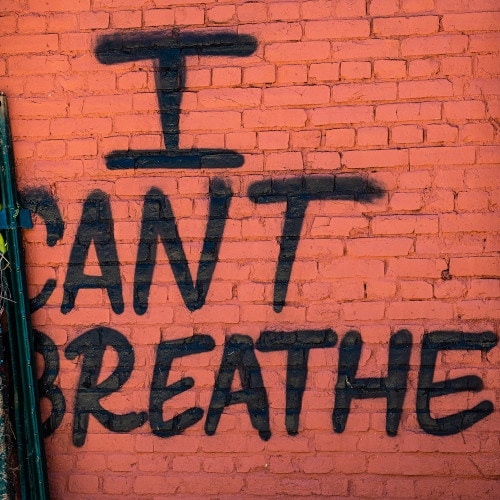The brutal murder of George Floyd on 25 May 2020 has once again revealed the terrifying fissures that cut across our societies and the hashtag Black Lives Matter emerged as a symbolic call for solidarity on a global scale. Racism dangerously exists, in formal institutions and beyond. It is time that we situate ourselves on the right side of history as calls for political anti-racism are gaining in strength everywhere. At this historic juncture of global societal transformation, the Allegra team has curated a list of recent books that explore the issue of race. Difficult questions related to the multiple forms that racism takes in countries like the United States, United Kingdom and South Africa – such as police brutality and torture, micro-aggressions in our everyday lives, the racist legacies of academia, the nexus between black politics and feminism and traumatic lived experiences of young black people – are addressed in these books. If you are interested in reviewing one of them and utilizing academic spaces to express your solidarity with BLM, do get in touch with us!
How to Proceed:
As we receive many requests for reviews, please send an email to reviews@allegralaboratory.net indicating which book you would like to review, your postal address, and 2-3 sentences explaining why you should be reviewing the book. Please explain how the book relates to your own research or interests. We will get back to you once we have selected the reviewers.
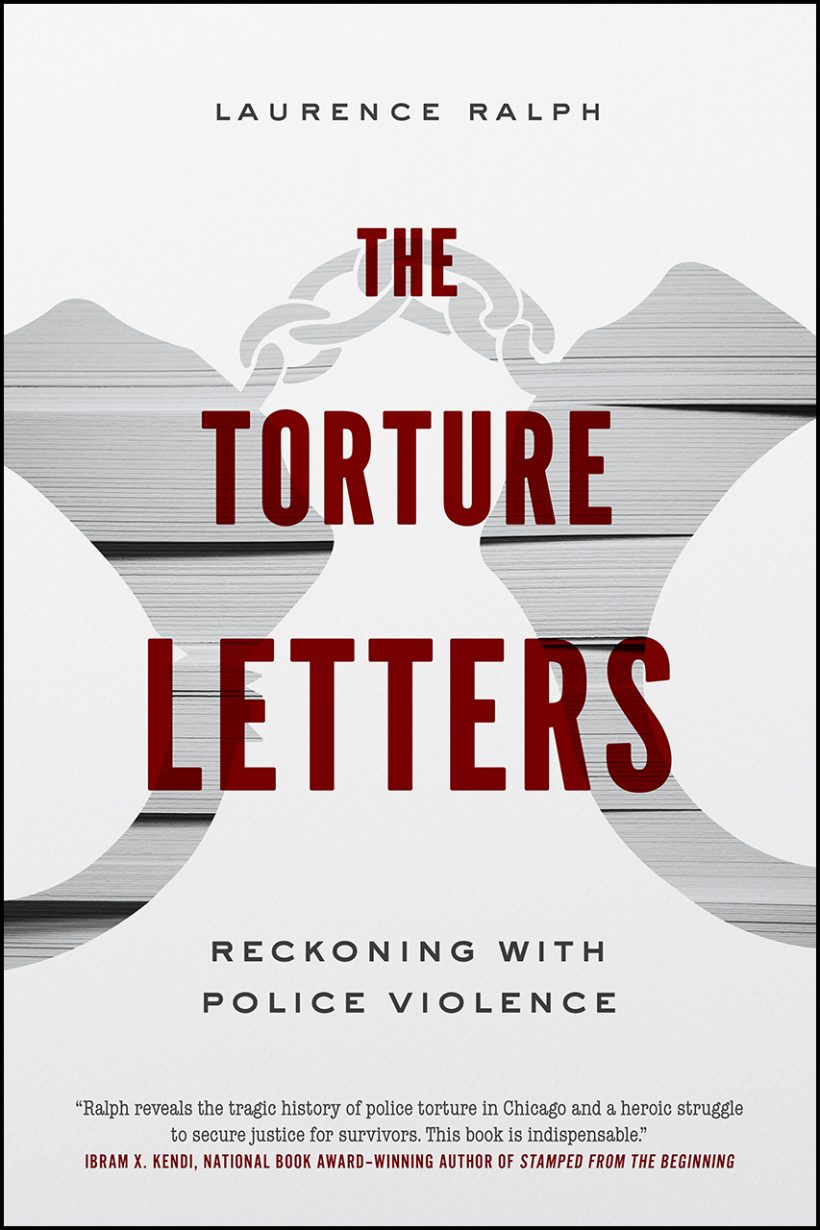 Laurence Ralph, 2020. The Torture Letters: Reckoning with Police Violence. The University of Chicago Press.
Laurence Ralph, 2020. The Torture Letters: Reckoning with Police Violence. The University of Chicago Press.
In The Torture Letters, Laurence Ralph chronicles the history of torture in Chicago, the burgeoning activist movement against police violence, and the American public’s complicity in perpetuating torture at home and abroad. Engaging with a long tradition of epistolary meditations on racism in the United States, from James Baldwin’s The Fire Next Time to Ta-Nehisi Coates’s Between the World and Me, Ralph offers in this book a collection of open letters written to protesters, victims, students, and others. Through these moving, questing, enraged letters, Ralph bears witness to police violence that began in Burge’s Area Two and follows the city’s networks of torture to the global War on Terror. From Vietnam to Geneva to Guantanamo Bay—Ralph’s story extends as far as the legacy of American imperialism. Combining insights from fourteen years of research on torture with testimonies of victims of police violence, retired officers, lawyers, and protesters, this is a powerful indictment of police violence and a fierce challenge to all Americans to demand an end to the systems that support it.
With compassion and careful skill, Ralph uncovers the tangled connections among law enforcement, the political machine, and the courts in Chicago, amplifying the voices of torture victims who are still with us—and lending a voice to those long deceased.
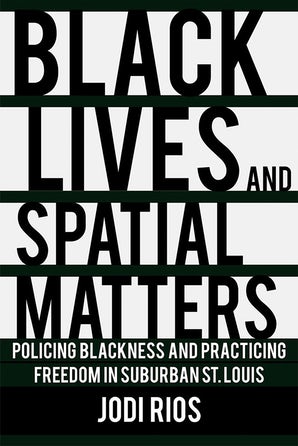 Jodi Rios, 2020. Black Lives and Spatial Matters: Policing Blackness and Practicing Freedom in
Jodi Rios, 2020. Black Lives and Spatial Matters: Policing Blackness and Practicing Freedom in
Suburban St. Louis. Cornell University Press.Black Lives and Spatial Matters is a call to reconsider the epistemic violence that is committed when scholars, policymakers, and the general public continue to frame Black precarity as just another racial, cultural, or ethnic conflict that can be solved solely through legal, political, or economic means. Jodi Rios argues that the historical and material production of blackness-as-risk is foundational to the historical and material construction of our society and certainly foundational to the construction and experience of metropolitan space. She also considers how an ethics of lived blackness—living fully and visibly in the face of forces intended to dehumanize and erase—can create a powerful counter point to blackness-as-risk.
Using a transdisciplinary methodology, Black Lives and Spatial Matters studies cultural, institutional, and spatial politics of race in North St. Louis County, Missouri, as a set of practices that are intimately connected to each other and to global histories of race and race-making. As such, the book adds important insight into the racialization of metropolitan space and people in the United States. The arguments presented in this book draw from fifteen years of engaged research in North St. Louis County and rely on multiple disciplinary perspectives and local knowledge in order to study relationships between interconnected practices and phenomena.
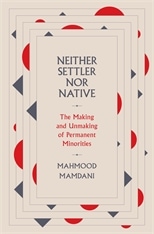 Mahmoud Mamdani, 2002. Neither Settler nor Native: The Making and Unmaking of Permanent Minorities. Harvard University Press. In this genealogy of political modernity, Mahmood Mamdani argues that the nation-state and the colonial state created each other. In case after case around the globe—from the New World to South Africa, Israel to Germany to Sudan—the colonial state and the nation-state have been mutually constructed through the politicization of a religious or ethnic majority at the expense of an equally manufactured minority.
Mahmoud Mamdani, 2002. Neither Settler nor Native: The Making and Unmaking of Permanent Minorities. Harvard University Press. In this genealogy of political modernity, Mahmood Mamdani argues that the nation-state and the colonial state created each other. In case after case around the globe—from the New World to South Africa, Israel to Germany to Sudan—the colonial state and the nation-state have been mutually constructed through the politicization of a religious or ethnic majority at the expense of an equally manufactured minority.
Neither Settler nor Native offers a vision for arresting this historical process. Mamdani rejects the “criminal” solution attempted at Nuremberg, which held individual perpetrators responsible without questioning Nazism as a political project and thus the violence of the nation-state itself. Instead, political violence demands political solutions: not criminal justice for perpetrators but a rethinking of the political community for all survivors—victims, perpetrators, bystanders, beneficiaries—based on common residence and the commitment to build a common future without the permanent political identities of settler and native. Mamdani points to the anti-apartheid struggle in South Africa as an unfinished project, seeking a state without a nation.
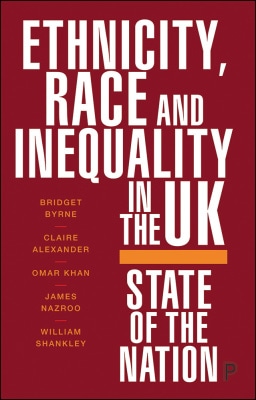 Bridget Byrne, Claire Alexander, Omar Khan, James Nazroo and William Shankley, 2020. Ethnicity, Race and Inequality in the UK: State of the Nation. Policy Press.
Bridget Byrne, Claire Alexander, Omar Khan, James Nazroo and William Shankley, 2020. Ethnicity, Race and Inequality in the UK: State of the Nation. Policy Press.
50 years after the establishment of the Runnymede Trust and the Race Relations Act of 1968 which sought to end discrimination in public life, this accessible book provides commentary by some of the UK’s foremost scholars of race and ethnicity on data relating to a wide range of sectors of society, including employment, health, education, criminal justice, housing and representation in the arts and media.
It explores what progress has been made, identifies those areas where inequalities remain stubbornly resistant to change, and asks how our thinking around race and ethnicity has changed in an era of Islamophobia, Brexit and an increasingly diverse population.
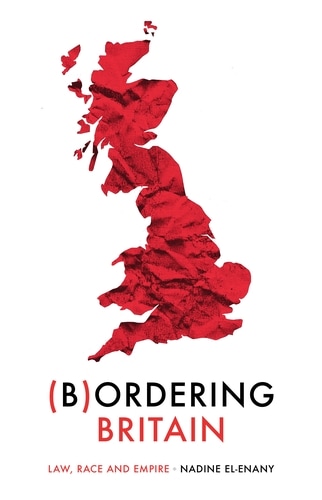 Nadine El-Enany, 2020. (B)ordering Britain:Law, Race and Empire. Manchester University Press.
Nadine El-Enany, 2020. (B)ordering Britain:Law, Race and Empire. Manchester University Press.
(B)ordering Britain argues that Britain is the spoils of empire, its immigration law is colonial violence and irregular immigration is anti-colonial resistance. In announcing itself as postcolonial through immigration and nationality laws passed in the 60s, 70s and 80s, Britain cut itself off symbolically and physically from its colonies and the Commonwealth, taking with it what it had plundered. This imperial vanishing act cast Britain’s colonial history into the shadows. The British Empire, about which Britons know little, can be remembered fondly as a moment of past glory, as a gift once given to the world. Meanwhile immigration laws are justified on the basis that they keep the undeserving hordes out. In fact, immigration laws are acts of colonial seizure and violence. They obstruct the vast majority of racialised people from accessing colonial wealth amassed in the course of colonial conquest. Regardless of what the law, media and political discourse dictate, people with personal, ancestral or geographical links to colonialism, or those existing under the weight of its legacy of race and racism, have every right to come to Britain and take back what is theirs.
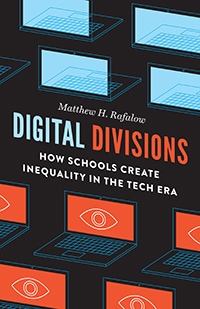 Matthew H. Rafalow, 2020. Digital Divisions: How Schools Create Inequality in the Tech Era. The University of Chicago Press.
Matthew H. Rafalow, 2020. Digital Divisions: How Schools Create Inequality in the Tech Era. The University of Chicago Press.
In the digital age, schools are a central part of a nationwide effort to make access to technology more equitable, so that all young people, regardless of identity or background, have the opportunity to engage with the technologies that are essential to modern life. Most students, however, come to school with digital knowledge they’ve already acquired from the range of activities they participate in with peers online. Yet, teachers, as Matthew H. Rafalow reveals in Digital Divisions, interpret these technological skills very differently based on the race and class of their student body.
Rafalow finds in his study of three California middle schools that students of all backgrounds use digital technology with sophistication and creativity, but only the teachers in the school serving predominantly White, affluent students help translate the digital skills students develop through their digital play into educational capital. Digital Divisions provides an in-depth look at how teachers operate as gatekeepers for students’ potential, reacting differently according to the race and class of their student body. As a result, Rafalow shows us that the digital divide is much more than a matter of access: it’s about how schools perceive the value of digital technology and then use them day-to-day.
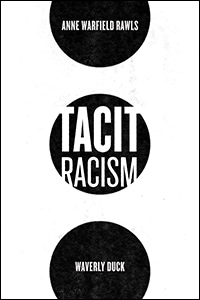 Anne Warfield Rawls and Waverly Duck, 2020. Tacit Racism. University of Chicago Press.
Anne Warfield Rawls and Waverly Duck, 2020. Tacit Racism. University of Chicago Press.
We need to talk about racism before it destroys our democracy. And that conversation needs to start with an acknowledgement that racism is coded into even the most ordinary interactions.
Every time we interact with another human being, we unconsciously draw on a set of expectations to guide us through the encounter. What many of us in the United States—especially white people—do not recognize is that centuries of institutional racism have inescapably molded those expectations. This leads us to act with implicit biases that can shape everything from how we greet our neighbors to whether we take a second look at a resume. This is tacit racism, and it is one of the most pernicious threats to our nation. In Tacit Racism, Anne Warfield Rawls and Waverly Duck illustrate the many ways in which racism is coded into the everyday social expectations of Americans, in what they call Interaction Orders of Race. They argue that these interactions can produce racial inequality, whether the people involved are aware of it or not, and that by overlooking tacit racism in favor of the fiction of a “color-blind” nation, we are harming not only our society’s most disadvantaged—but endangering the society itself.
Laura T. Hamilton and Kelly Nielsen, 2021. Broke: The Racial Consequences of Underfunding Public Universities. University of Chicago Press.
Public research universities were previously able to provide excellent education to white families thanks to healthy government funding. However, that funding has all but dried up in recent decades as historically underrepresented students have gained greater access, and now less prestigious publicuniversities face major economic challenges. In Broke, Laura T. Hamilton and Kelly Nielsen examine virtually all aspects of campus life to show how the new economic order in public universities, particularly at two campuses in the renowned University of California system, affects students. For most of the twentieth century, they show, less affluent families of color paid with their taxes for wealthy white students to attend universities where their own offspring were not welcome. That changed as a subset of public research universities, some quite old, opted for a “new” approach, making racially and economically marginalized youth the lifeblood of the university. These new universities, however, have been particularly hard hit by austerity. To survive, they’ve had to adapt, finding new ways to secure funding and trim costs—but ultimately it’s their students who pay the price, in decreased services and inadequate infrastructure. The rise of new universities is a reminder that a world-class education for all is possible. Broke shows us how far we are from that ideal and sets out a path for how we could get there.
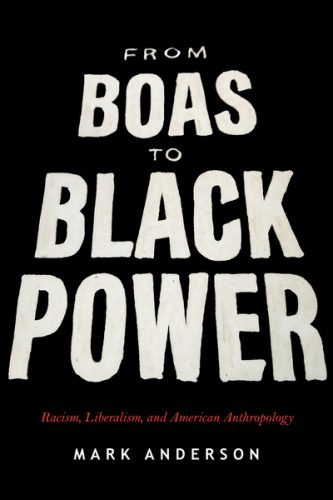 Mark Anderson, 2010. From Boas to Black Power: Racism, Liberalism and American Anthropology. Stanford University Press.
Mark Anderson, 2010. From Boas to Black Power: Racism, Liberalism and American Anthropology. Stanford University Press.
From Boas to Black Power investigates how U.S. cultural anthropologists wrote about race, racism, and “America” in the 20th century as a window into the greater project of U.S. anti-racist liberalism. Anthropology as a discipline and the American project share a common origin: their very foundations are built upon white supremacy, and both are still reckoning with their racist legacies. In this groundbreaking intellectual history of anti-racism within twentieth-century cultural anthropology, Mark Anderson starts with the legacy of Franz Boas and Ruth Benedict and continues through the post-war and Black Power movement to the birth of the Black Studies discipline, exploring the problem “America” represents for liberal anti-racism. Anderson shows how cultural anthropology contributed to liberal American discourses on race that simultaneously bolstered and denied white domination. From Boas to Black Power provides a major rethinking of anthropological anti-racism as a project that, in step with the American racial liberalism it helped create, paradoxically maintained white American hegemony. Anthropologists influenced by radical political movements of the 1960s offered the first sustained challenge to that project, calling attention to the racial contradictions of American liberalism reflected in anthropology. Their critiques remain relevant for the discipline and the nation.
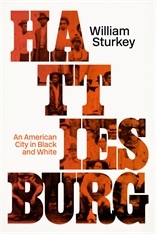 William Sturkey,2019. Hattiesburg: An American City in Black and White. Harvard University Press.
William Sturkey,2019. Hattiesburg: An American City in Black and White. Harvard University Press.
If you really want to understand Jim Crow—what it was and how African Americans rose up to defeat it—you should start by visiting Mobile Street in Hattiesburg, Mississippi, the heart of the historic black downtown. There you can see remnants of the shops and churches where, amid the violence and humiliation of segregation, men and women gathered to build a remarkable community. William Sturkey introduces us to both old-timers and newcomers who arrived in search of economic opportunities promised by the railroads, sawmills, and factories of the New South. He also takes us across town and inside the homes of white Hattiesburgers to show how their lives were shaped by the changing fortunes of the Jim Crow South. Sturkey reveals the stories behind those who struggled to uphold their southern “way of life” and those who fought to tear it down—from William Faulkner’s great-grandfather, a Confederate veteran who was the inspiration for the enigmatic character John Sartoris, to black leader Vernon Dahmer, whose killers were the first white men ever convicted of murdering a civil rights activist in Mississippi. Through it all, Hattiesburg traces the story of the Smith family across multiple generations, from Turner and Mamie Smith, who fled a life of sharecropping to find opportunity in town, to Hammond and Charles Smith, in whose family pharmacy Medgar Evers and his colleagues planned their strategy to give blacks the vote.
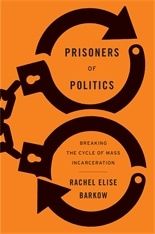 Rachel Elise Barkow, 2019. Prisoners of Politics: Breaking the Cycle of Mass Incarceration. Harvard University Press.
Rachel Elise Barkow, 2019. Prisoners of Politics: Breaking the Cycle of Mass Incarceration. Harvard University Press.
The United States has the world’s highest rate of incarceration, a form of punishment that ruins lives and makes a return to prison more likely. As awful as that truth is for individuals and their families, its social consequences—recycling offenders through an overwhelmed criminal justice system, ever-mounting costs, unequal treatment before the law, and a growing class of permanently criminalized citizens—are even more devastating. With the authority of a prominent legal scholar and the practical insights gained through on-the-ground work on criminal justice reform, Rachel Barkow explains how dangerous it is to base criminal justice policy on the whims of the electorate, which puts judges, sheriffs, and politicians in office. Instead, she argues for an institutional shift toward data and expertise, following the model used to set food and workplace safety rules. Barkow’s prescriptions are rooted in a thorough and refreshingly ideology-free cost–benefit analysis of how to cut mass incarceration while maintaining public safety. She points to specific policies that are deeply problematic on moral grounds and have failed to end the cycle of recidivism. Her concrete proposals draw on the best empirical information available to prevent crime and improve the reentry of former prisoners into society.
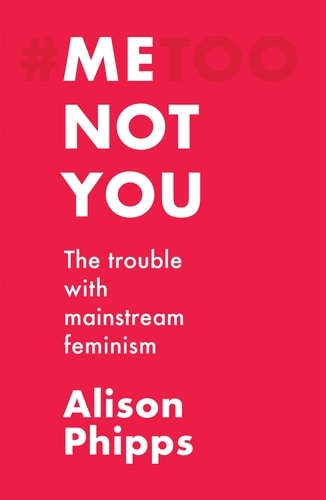 Alison Phipps, 2020. Me, Not You: The Trouble With Mainstream Feminism. Manchester University Press.
Alison Phipps, 2020. Me, Not You: The Trouble With Mainstream Feminism. Manchester University Press.
The Me Too movement, started by Black feminist Tarana Burke in 2006, went viral as a hashtag eleven years later after a tweet by white actor Alyssa Milano. Mainstream movements like #MeToo have often built on and co-opted the work of women of colour, while refusing to learn from them or centre their concerns. Far too often, the message is not ‘Me, Too’ but ‘Me, Not You’. Alison Phipps argues that this is not just a lack of solidarity. Privileged white women also sacrifice more marginalised people to achieve their aims, or even define them as enemies when they get in the way.
Me, not you argues that the mainstream movement against sexual violence expresses a political whiteness that both reflects its demographics and limits its revolutionary potential. Privileged white women use their traumatic experiences to create media outrage, while relying on state power and bureaucracy to purge ‘bad men’ from elite institutions with little concern for where they might appear next. In their attacks on sex workers and trans people, the more reactionary branches of this feminist movement play into the hands of the resurgent far-right
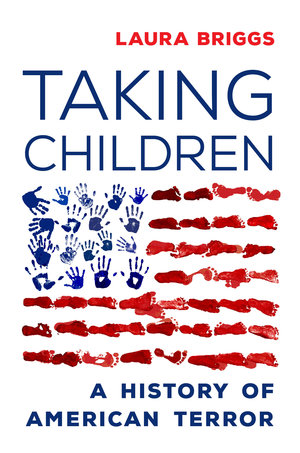 Laura Briggs, 2020. Taking Children: A History of American Terror. University of California Press.
Laura Briggs, 2020. Taking Children: A History of American Terror. University of California Press.
Taking Children argues that for four hundred years the United States has taken children for political ends. Black children, Native children, Latinx children, and the children of the poor have all been seized from their kin and caregivers. As Laura Briggs’s sweeping narrative shows, the practice played out on the auction block, in the boarding schools designed to pacify the Native American population, in the foster care system used to put down the Black freedom movement, in the US’s anti-Communist coups in Central America, and in the moral panic about “crack babies.” In chilling detail we see how Central Americans were made into a population that could be stripped of their children and how every US administration beginning with Reagan has put children of immigrants and refugees in detention camps. Yet these tactics of terror have encountered opposition from every generation, and Briggs challenges us to stand and resist in this powerful corrective to American history.
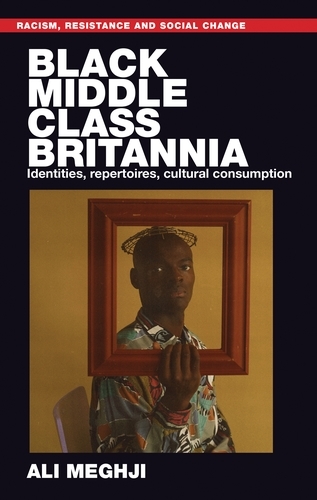 Ali Meghji, 2019. Black Middle-class Britannia: Identities, Repertoires, Cultural Consumption. Manchester University Press.
Ali Meghji, 2019. Black Middle-class Britannia: Identities, Repertoires, Cultural Consumption. Manchester University Press.
This book analyses how racism and anti-racism affects Black British middle-class cultural consumption. In doing so, it challenges the dominant understanding of British middle-class identity and culture as being ‘beyond race’. Paying attention to the relationship between cultural capital and cultural repertoires, Meghji argues that there are three modes of black middle-class identity: strategic assimilation, ethnoracial autonomous, and class-minded. Individuals within each of these identity modes use specific cultural repertoires to organise their cultural consumption. Those employing strategic assimilation draw on repertoires of code-switching and cultural equity, consuming traditional middle-class culture to maintain equality with the white middle-class in levels of cultural capital. Ethnoracial autonomous individuals draw on repertoires of ‘browning’ and Afro-centrism, self-selecting traditional middle-class cultural pursuits they decode as ‘Eurocentric’ while showing a preference for cultural forms that uplift black diasporic histories and cultures. Lastly, class-minded individuals draw on repertoires of post-racialism and de-racialisation, polarising between ‘Black’ and middle-class cultural forms. Black middle class Britannia examines how such individuals display an unequivocal preference for the latter, lambasting other black people who avoid middle-class culture as being culturally myopic or culturally uncultivated.
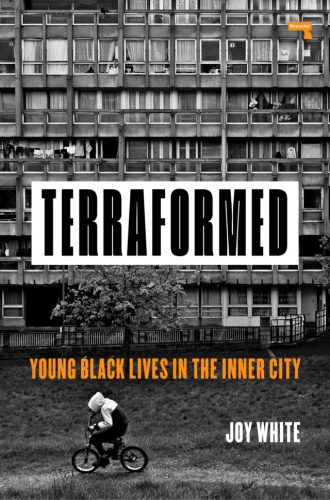 Terraformed: Young Black Lives in the Inner City. Repeater.
Terraformed: Young Black Lives in the Inner City. Repeater.
In Terraformed, Joy White offers an insider ethnography of Forest Gate — a neighbourhood in Newham, east London — analysing how these issues affect the black youth of today. Connecting the dots between music, politics and the built environment, it centres the lived experiences of black youth who have had it all: huge student debt, invisible homelessness, custodial sentences, electronic tagging, surveillance, arrest, ASBOs, issues with health and well-being, and of course, loss.
Part ethnography, part memoir, Terraformed contextualises the history of Newham and considers how young black lives are affected by racism, neoliberalism and austerity.
Allegra review guidelines:
All reviews should be completed within two months of the receipt of the book.
We use British English (i.e. use –ise and not –ize word endings). We encourage clear expression and simple sentence structures especially if English is not your first language.
Word limit: 750-1500 words.
Font: Times New Roman.
Size: 12.
Line Spacing: 1,5
No footnotes.
If you cite other authors, please reference their publication in the end.
When submitting the review, do not forget to include your name, (academic) affiliation (if any), a photograph of yourself and a short bio of 2-3 sentences.
Featured Image (cropped) by Don Sniegowski(CC 2.0), flickr.com

